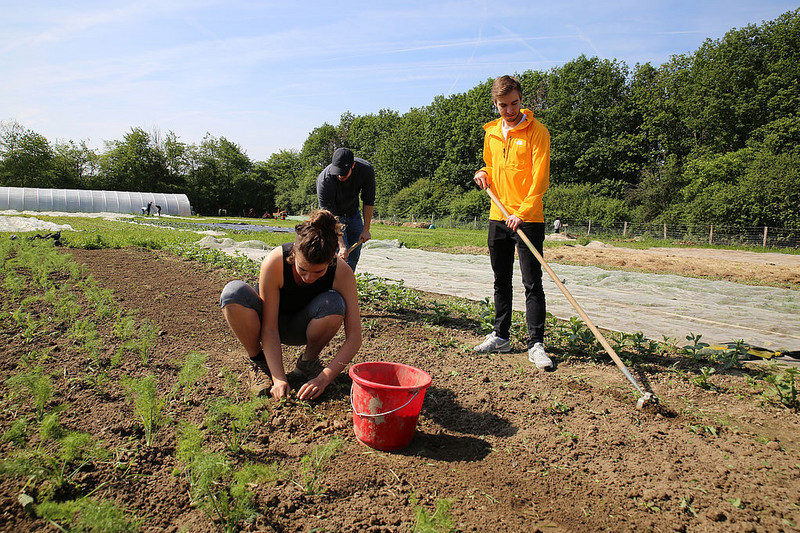Gardening in the City: Educational Agriculture at the University of Witten/Herdecke

Turning the Annener Berg Vegetable Farm into a forward-thinking location: that is what the developmental community for holistic education at Annener Berg is aiming for. To do so, they are bringing agriculture back into the urban realm and connecting it to numerous educational opportunities: an apiary to learn beekeeping, grazing sheep pasturing the hill, community-supported agriculture, an educational garden, and a vegetable garden in Witten are the initial projects of the comprehensive plan for educational agriculture. The organization is intent on integrating multiple generations and different institutions into its community; participants include, among others, the Blote Vogel Waldorf school and Waldorf kindergarten, the Institute for Waldorf Education in Witten/Annen and its agricultural gardens, and the social-therapeutic community at Christopherus-Hof, as well as the city of Witten and the local adult education center, or Volkshochschule.
“Thanks to the many participating institutions and the diverse educational and experiential topics pertaining to agriculture, in this case, we can truly speak of a model project,” said SAGST project manager Sebastian Bauer. “Young people of all ages experience practical insights into the agricultural value chain and experience self-efficacy. Both create a strong foundation for a healthy capacity for decision-making in the future.”
In close cooperation with the University of Witten/Herdecke, ideas are being developed for healthy, sustainable community nutrition. The cafeteria at the school now serves vegetables that are not just organic, but home-grown. Since the 2019 summer semester, students in the Studium Fundamentale have themselves been picking up hoes and shovels; together with the staff of the agricultural gardens, they are harvesting fresh vegetables on the fields of the Vöckenberg. The harvest directly benefits students and staff, who can order a weekly vegetable net with freshly-harvested vegetables, which can be picked up in the cafeteria. In the future, the produce may also find its way into classroom instruction or into the university clinic for integrative medical care and natural medicine. In Witten, in the future, medical students may directly experience the role of healthy nutrition for human health, while patients in nutritional counseling may be able to experience the path from farm to table more directly, for example through cooking courses or even by helping in the fields.
